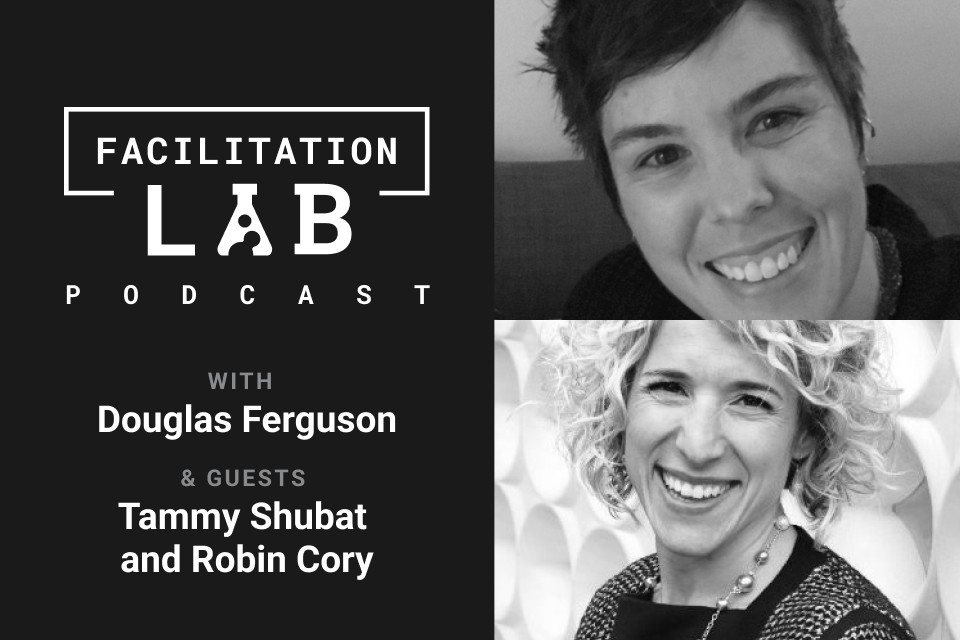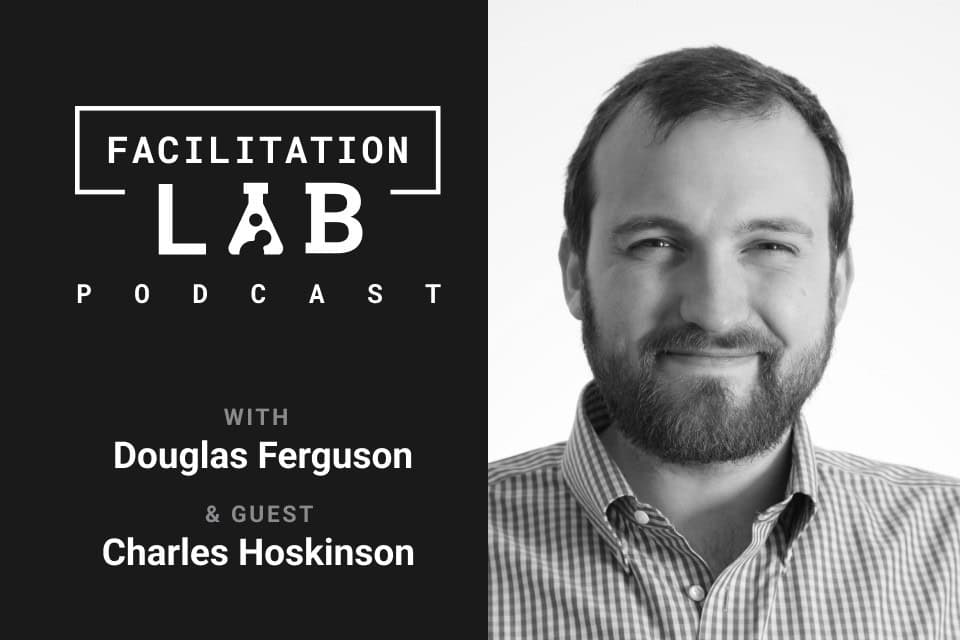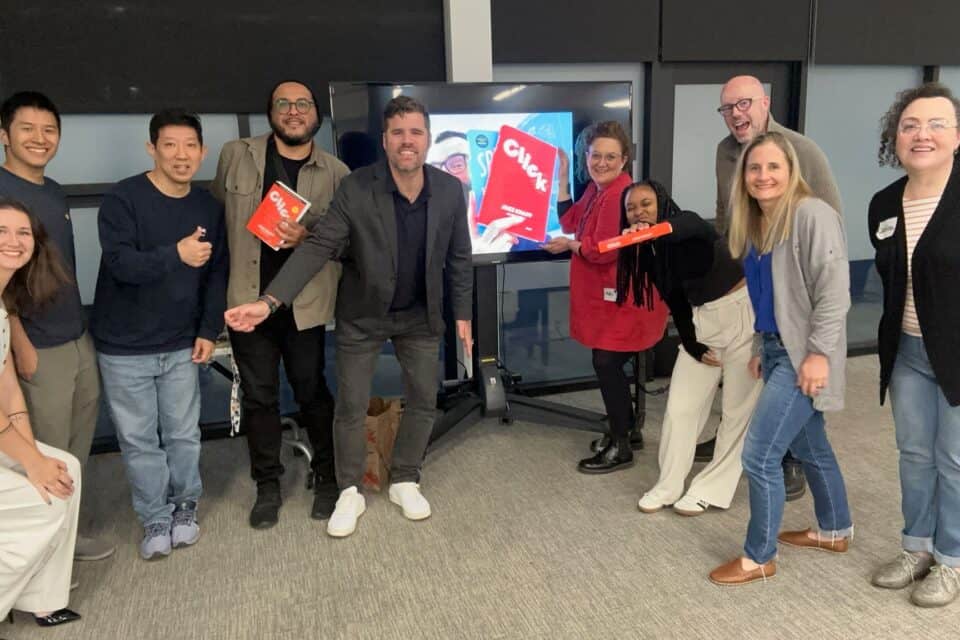
In this episode of the Facilitation Lab podcast, host Douglas Ferguson speaks with facilitation experts Tammy Shubat and Robin Cory, both Voltage Control certification alumni. Tammy shares her journey from leadership to facilitation, focusing on relationship-building and creating safe spaces for bold participation. Robin discusses her facilitation approach, inspired by Tammy, and emphasizes thoughtful session design to foster engagement and creativity. Together, they explore the challenges and opportunities in the nonprofit sector, highlighting the importance of collaboration, purposeful gatherings, and centering relationships to drive meaningful change within mission-driven organizations.








